India: Supreme Court Upholds Army Officer’s Dismissal; Christian Voices Differ on Ruling
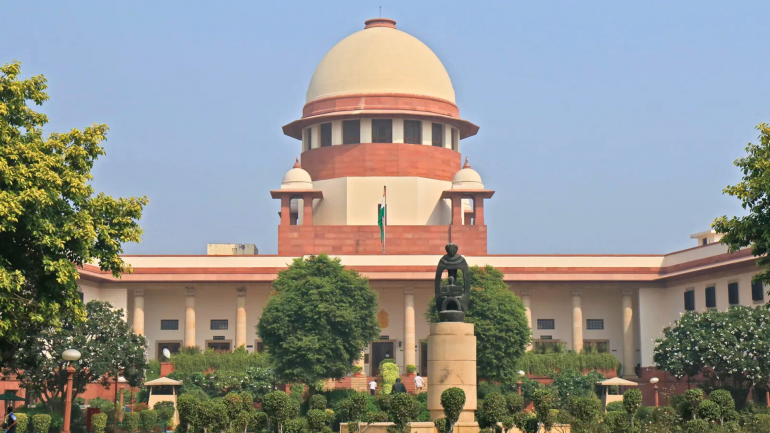
On Nov 25, the Supreme Court of India upheld the Delhi High Court’s decision confirming the dismissal of Lt. Samuel Kamalesan, a Christian Army officer removed from service for refusing to enter the sanctum sanctorum of his regiment’s temple during a ceremonial duty.
A two-judge Bench of Chief Justice of India Surya Kant and Justice Joymalya Bagchi ruled that the officer’s refusal amounted to “the grossest kind of indiscipline”, stressing that the Army, as a secular institution, cannot compromise on its discipline or command structure. The Court held that Lt. Kamalesan had used his “personal understanding” of faith to defy a lawful military order, thereby insulting the morale of the troops he was expected to lead.
The officer had argued that being compelled to enter the inner shrine of the temple violated his religious freedom as a Protestant Christian. The Army maintained that the act was a traditional regimental duty and not an act of worship.
Court: Cannot Place Personal Belief Above Command
During the hearing, Chief Justice Surya Kant noted that religious beliefs cannot override military discipline:
“Leaders have to lead by example. You insulted your troops… You cannot have your private understanding of what your religion permits. That too, in uniform.”
The Court also observed that even after a Christian pastor advised him that entering the shrine would not violate his faith, Lt. Kamalesan remained, in the Court’s words, “cantankerous.”
The Delhi High Court’s May judgment, now upheld, had similarly stated that the officer “kept his religion above a lawful command,” violating essential military ethos.
Reactions From Christian Voices Differ
The ruling has sparked varied responses within the Christian community, particularly regarding the balance between religious liberty and military discipline.
“A very bad judgement” — A.J. Philip
Senior journalist A.J. Philip strongly criticized the verdict, calling it “a very bad judgement.” He argued that Lt. Kamalesan had not refused to carry out his command responsibilities but only declined to enter the inner sanctum and participate in a religious ritual.
Philip raised a broader question of parity: “How many Hindu officers will command their Muslim soldiers to a mosque and pray with them?” He said the ruling risks creating confusion about what constitutes legitimate obedience and what amounts to compelled religious participation.
“Rules must be followed” — Advocate Abraham Pattiani
Advocate Abraham Pattiani, former member of the Delhi Minorities Commission, took a different view. While reserving final comments until he studies the judgment fully, he noted that members of the Armed Forces pledge to follow strict rules, which may involve the temporary suspension of certain personal freedoms.
“He is obliged to follow the Regiment’s discipline as long as he serves. That may include limits on religious freedom.”
“Troubling for religious liberty” — Advocate Midrash Mathew
Advocate Midrash Mathew expressed deep concern about the implications of the ruling for constitutionally protected religious freedom.
“As a Christian, a practising advocate, and participant in public discourse, the ruling troubles my conscience. The Constitution guarantees every individual the right to practise religion freely. The law must protect this right, even for the Army.”
He warned that using religion as a criterion for enforcing discipline could erode trust among minority communities:
“All citizens, regardless of faith, deserve to know they cannot be discriminated against because of their beliefs.”
At the same time, he acknowledged the challenge of balancing national security and personal liberty, calling for “refined legal protections” that honour India’s plural and democratic values.
The case has opened a wider debate on whether religious freedom can be reasonably limited in military service and how secularism should function within the Armed Forces’ regimental traditions.
The Supreme Court’s strong remarks — especially its assessment that the officer’s conduct “insulted his troops” — underline the centrality of obedience and symbolic leadership within the Army.
For many Christian observers, however, the incident highlights the need for clearer protocols that distinguish between religious rituals and military customs, to avoid conflating cultural practices with acts of worship.
Radio Veritas Asia (RVA), a media platform of the Catholic Church, aims to share Christ. RVA started in 1969 as a continental Catholic radio station to serve Asian countries in their respective local language, thus earning the tag “the Voice of Asian Christianity.” Responding to the emerging context, RVA embraced media platforms to connect with the global Asian audience via its 21 language websites and various social media platforms.











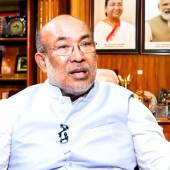
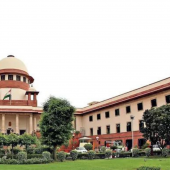
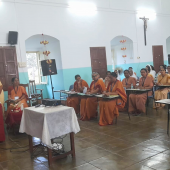
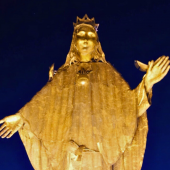
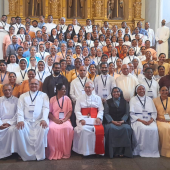
- Reply
Permalink